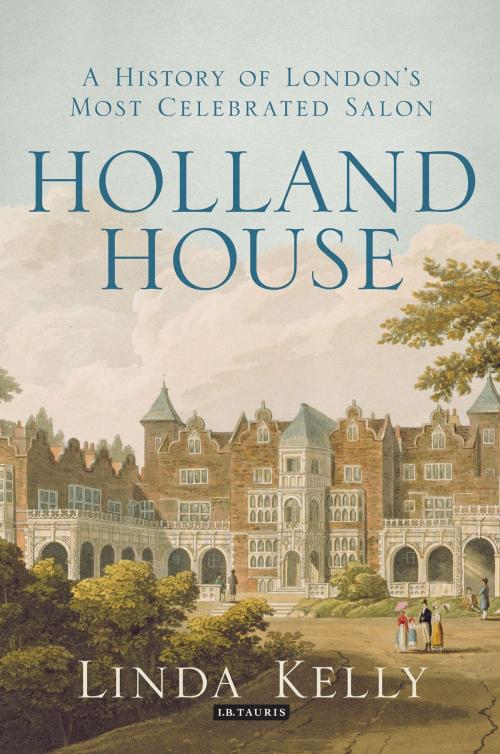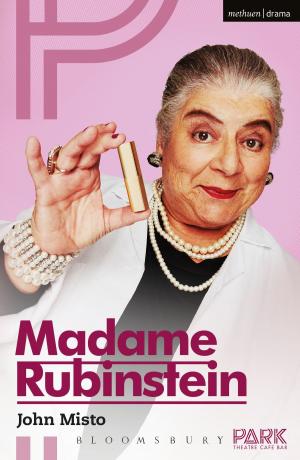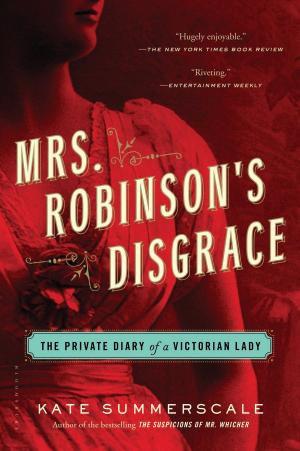Holland House
A History of London's Most Celebrated Salon
Nonfiction, History, British, Social & Cultural Studies, Political Science| Author: | Linda Kelly | ISBN: | 9780857732965 |
| Publisher: | Bloomsbury Publishing | Publication: | February 12, 2013 |
| Imprint: | I.B. Tauris | Language: | English |
| Author: | Linda Kelly |
| ISBN: | 9780857732965 |
| Publisher: | Bloomsbury Publishing |
| Publication: | February 12, 2013 |
| Imprint: | I.B. Tauris |
| Language: | English |
Situated in the heart of London's Holland Park are the remains of Holland House – the site of what was once England's most celebrated political salon. In the first thirty years of the nineteenth century – when the Whig party were almost constantly out of office - the home of the third Lord Holland became the unofficial centre of the Opposition.
Devoted to the ideals of Charles James Fox – the prominent Whig statesman who was also Lord Holland's uncle – and enriched by the progressive views of a new generation of writers, critics and politicians, the influence of Holland House permeated the political climate. Combining politics and the arts, the salon attracted the greatest names of the age - Byron, Thomas Macaulay, Talleyrand and Madame de Staël all dined at Holland House. At a time when revolutions threatened to engulf Europe, the Whig tradition of aristocratic liberalism - avoiding the extremes of radicalism and reaction – proved to be one of the chief factors in the peaceful achievement of parliamentary reform, epitomised by the Great Reform Act of 1832. The embodiment of this tradition was Holland House.
The salon was presided over by Lady Holland - a magnetic hostess. Beautiful and clever she had left her much-older husband, Sir Godfrey Webster, to marry Lord Holland and as a result was ostracised in many London drawing rooms. But in Holland House, society would come to her. Lady Holland was in the thick of Whig discussions, occasionally following her own political line. She had a special passion for Napoleon and sent him over a thousand books in St Helena.
Occupying a key position in the political and cultural life of the age, Holland House was a unique and important force at a time of great political change. Linda Kelly brings to life the colourful world of Holland House, providing a vivid portrait of London's greatest political salon.
Situated in the heart of London's Holland Park are the remains of Holland House – the site of what was once England's most celebrated political salon. In the first thirty years of the nineteenth century – when the Whig party were almost constantly out of office - the home of the third Lord Holland became the unofficial centre of the Opposition.
Devoted to the ideals of Charles James Fox – the prominent Whig statesman who was also Lord Holland's uncle – and enriched by the progressive views of a new generation of writers, critics and politicians, the influence of Holland House permeated the political climate. Combining politics and the arts, the salon attracted the greatest names of the age - Byron, Thomas Macaulay, Talleyrand and Madame de Staël all dined at Holland House. At a time when revolutions threatened to engulf Europe, the Whig tradition of aristocratic liberalism - avoiding the extremes of radicalism and reaction – proved to be one of the chief factors in the peaceful achievement of parliamentary reform, epitomised by the Great Reform Act of 1832. The embodiment of this tradition was Holland House.
The salon was presided over by Lady Holland - a magnetic hostess. Beautiful and clever she had left her much-older husband, Sir Godfrey Webster, to marry Lord Holland and as a result was ostracised in many London drawing rooms. But in Holland House, society would come to her. Lady Holland was in the thick of Whig discussions, occasionally following her own political line. She had a special passion for Napoleon and sent him over a thousand books in St Helena.
Occupying a key position in the political and cultural life of the age, Holland House was a unique and important force at a time of great political change. Linda Kelly brings to life the colourful world of Holland House, providing a vivid portrait of London's greatest political salon.















